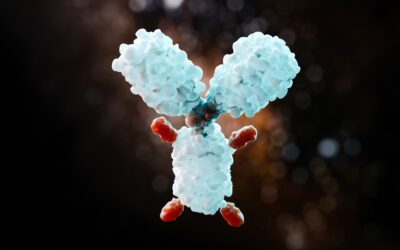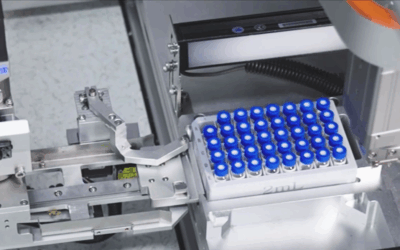Developing biologic solutions is a complex process, and bridging bioanalytical assays from preclinical to phase I clinical trials is a demanding step in advancing your therapeutic. While maneuvering through regulatory requirements and intensive testing, it is easy for pieces to fall through the cracks.
At the 14th WRIB conference, WuXi AppTec hosted a roundtable discussion on the importance of planning a seamless transition from preclinical to clinical assays and how to effectively progress your drug development program to first-in-human (FIH) trials.
Leaders in the industry from various backgrounds discussed common challenges drug developers face and addressed key considerations when moving into clinical testing phases. These panelists included:
- Jon Wojciak, Associate Director at Tanabe Research Laboratories U.S.A., Inc.
- Linglong Zou, Global Head of Bioanalytical Translational Services at Henlius Biotech, Inc.
- Jing Shi, Executive Director and Global Head of Large Molecule Bioanalysis at WuXi AppTec
When progressing to FIH trials and considering patient and clinician needs, adapting study design and understanding the effect on endpoints is critical. Keep pivotal elements in mind when planning for clinical bioanalysis, including dose levels, dose schedule and testing for either the free or total drug along with immunogenicity responses. Drug developers can prepare for these elements from insights gained during preclinical phases.
As the transition to clinical trials approaches, many developers realize they are behind schedule for generating appropriate reagents as positive controls for anti-drug antibody (ADA) assays and characterizing antibodies, or other elements needed to begin testing. Sponsors face the challenge of preparing for these vital differences between preclinical and clinical assays.
Planning realistic clinical timelines is critical to avoid delays for beginning subsequent studies. Panelists shared key timelines and timesaving techniques they recommend to sponsors to avoid setbacks and how to advance programs to clinical trials with the correct data and assays.
The panel also examined strategies for drug developers to make this testing transition smoother and more productive. For instance, there are benefits to using the same bioanalytical laboratory to support preclinical and clinical assays for the same program. Panelist Jing Shi, shared her thoughts, saying, “There are certain advantages in terms of continuity of knowledge about the molecule itself and the performance of the assays.”
You can find unique insights on effectively driving your bioanalytical assays from preclinical to clinical phases in our latest whitepaper “Bridging Preclinical and Clinical Assays for Biologics Development – Challenges and Consideration for Phase I Trials.”
Follow WuXi AppTec Laboratory Testing Division on LinkedIn for industry insights and program support.
As a global company with operations across Asia, Europe, and North America, WuXi AppTec provides a broad portfolio of R&D and manufacturing services that enable the global pharmaceutical and life sciences industry to advance discoveries and deliver groundbreaking treatments to patients. Through its unique business models, WuXi AppTec’s integrated, end-to-end services include chemistry drug CRDMO (Contract Research, Development and Manufacturing Organization), biology discovery, preclinical testing and clinical research services, helping customers improve the productivity of advancing healthcare products through cost-effective and efficient solutions. WuXi AppTec received an AA ESG rating from MSCI for the fourth consecutive year in 2024 and its open-access platform is enabling around 6,000 customers from over 30 countries to improve the health of those in need – and to realize the vision that “every drug can be made and every disease can be treated.”
For more information, please visit: https://labtesting.wuxiapptec.com/


